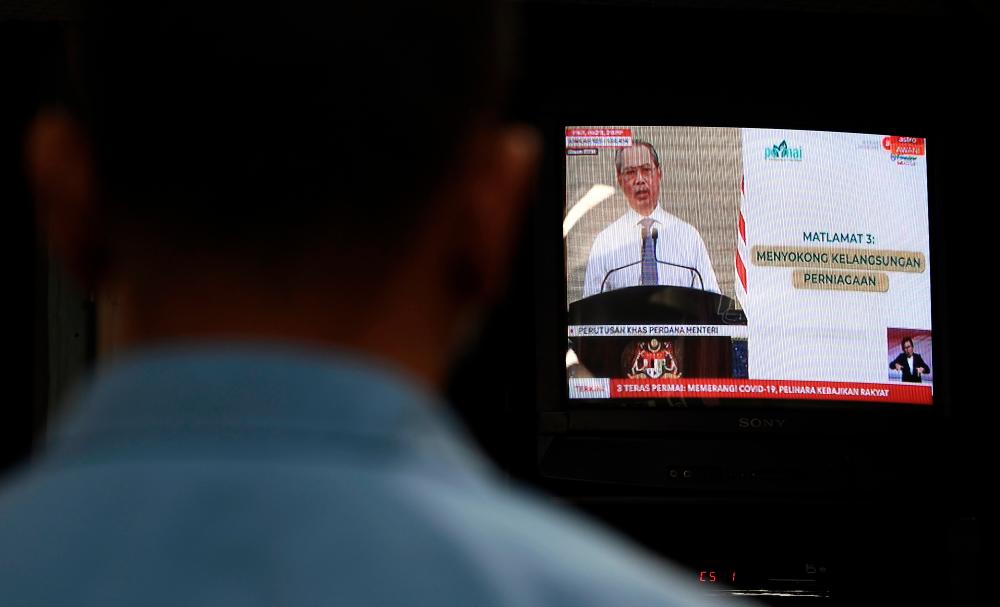KUALA LUMPUR: More than a million families in the lower-income bracket are expected to benefit from a new and wide-ranging RM15 billion aid package launched by Prime Minister Tan Sri Muhyiddin Yassin yesterday.
The objective of the Malaysian Economic and Rakyat Protection Assistance Package (Permai) is anchored on three goals – battling the Covid-19 pandemic, preserving the welfare of the people and supporting business continuity.
The package includes a one-time i-Sinar advance of RM1,000 for eligible contributors and a one-off RM500 payment for e-hailing and taxi drivers, most of whom belong to the lower income group.
In an immediate reaction, economist Dr Yeah Kim Leng said the initiative will help reduce distress among households and businesses.
“It will be a lifeline for those in the lower-income group. They are already financially depressed because of the pandemic, and they have fallen into the poverty trap.”
Yeah added that the cash relief will help them to pull through, especially for those who have lost their jobs.
Policy expert Dr Lim Teck Ghee said the government should also divert part of the current development budget to help the poorest households, despite concerns over leakage and poor targeting.
“All it needs is for the prime minister to order a reallocation of a portion of the development budget or even the operating budget, to be used for social protection and poverty alleviation,” he told theSun.
Among 22 initiatives in Permai, Muhyiddin said there is also a food basket programme involving RM50 million to provide food for underprivileged households.
For businesses, there is the Danajamin Guarantee Scheme, with RM50 billion to support growth in the private sector and to grow the country’s economy.
Yeah said the priority of the stimulus package for now is to reduce job losses, and to prevent more lives being lost due to the pandemic.
He added that another stimulus package cannot be ruled out if the number of new Covid-19 cases continues to rise.
“It could be inevitable, and it appears we are reaching that point. It would be a tough choice, but the earlier the vaccination programme comes along, the faster we can recover,” he said.
The relief appears to be timely, especially for over a million families in the country who are at risk of poverty, according to a recent study by the Khazanah Research Institute.
The study showed that such households were at a high risk of falling into destitution in case of catastrophic events such as the current pandemic and job loss.
Lim said while the government has the data for financial distribution to be given through different demographics including by region, race and education, the political and administrative leadership at the highest level to make this a priority is missing.
He also called for the affected households to be absorbed into the labour force in some capacity.
“They should be made to go back (to work) as soon as possible, even at minimal wage. Any relief needs to be temporary for households with adult working members,” he added.











